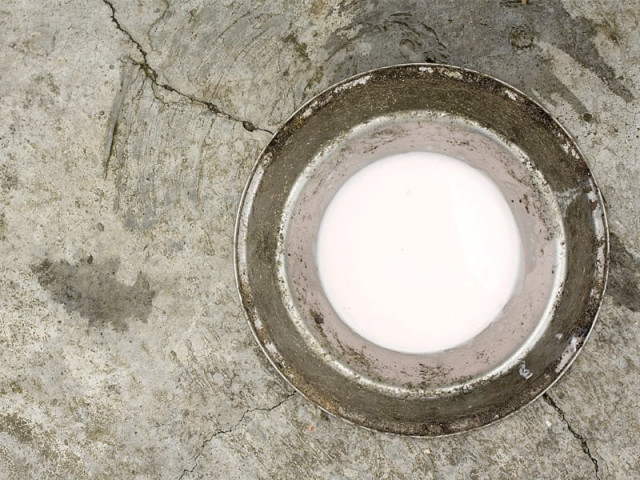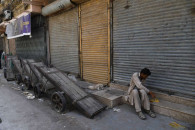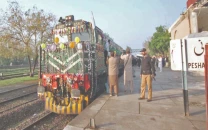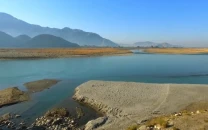Revealing figures: ‘More than half of Balochistan is poor’
The survey counters official figures that place incidence of poverty at 12%.

The survey counters official figures that place incidence of poverty at 12%. DESIGN: MAHA HAIDER
Over 60% of the entire population of the province is living below the poverty line, states a ‘Poverty Survey’ carried out under the flagship of BISP, an internationally recognised social security programme.
More than 0.45 million families from total of 1.03 households in Balochistan have been declared eligible for financial support based on the survey results, said BISP Chairperson Farzana Raja during an exclusive interview with The Express Tribune.
Across the country, as many as 80 million people -45.7% of the entire population- live below the poverty line, states the survey. These results sharply negate the figures documented by an official survey that stated the incidence of poverty to be at 12%. The door-to-door poverty survey was launched to identify the lowest income households in order to provide them with Rs1, 000 monthly grants, said Raja.
Over 7.3 million families belonging to 27 million households have qualified for the financial support, she added.
In the province of Sindh, more than 2.52 million families from a total 6.48 households are declared poor by the survey. The count in Punjab is 2.62 million families belonging to 14.75 million households.
Around 1.33 million families of 3.61 households in Khyber-Pakhtunkhwa have been termed poor by the survey. The figures in Azad Jammu and Kashmir are 0.1 million families from 0.5 million.
In Gilgit-Baltistan region 0.04 million families or 0.1 households and in FATA 0.19 million families or 0.38 million households were declared eligible for the grant under BISP.
When asked about BISP’s fate after the end of the incumbent government’s term, the minister said that the BISP is an independent authority. It was given a legal stature when the Parliament unanimously passed its bill, she added.
The government has in the last four years disbursed more than Rs146 billion to the deserving citizens of the country with complete transparency, she told The Express Tribune.
An amount of Rs1, 000 per family as monthly allowance is already being dispatched to over 7.29 million families that were identified by the poverty survey.
Talking about other initiatives of BISP, the minister shared that over 20.3 million women got registered with the National Database Registration Authority and were issued Computerised National Identities Cards with the help of the programme.
Other programmes working successfully under BISP include Waseela-e-Haq, Waseela-e-Rozgar, Waseela-e-Sehet and Waseela-e-Taleem, she added.
Budget/International support
About budget, she said Rs70 billion were allocated by the government in account of fiscal year 2012-13. Regarding international donors, she said around 300 million pounds were agreed upon for the beneficiaries. The United Kingdom, World Bank, Asian Development Bank and the United States are major contributors for this social security programme. Britain’s Department for International Development, USAID, China, Turkey and Iran also made contributions for the programme.
60% of the entire population is living under the poverty line in Balochistan, according to a BISP survey
27% households have qualified for financial support in the country
45.7% people of the entire population of the country are living below the poverty line
Over 7.3 million families of 27 million households have qualified for the financial support in the country.
- Over 2.52 million families of total 6.48 households declared poor who are living below the poverty line in Sindh,
- 2.62 million families of 14.75 million households in Punjab,
- 1.33 million families of 3.61 households in Khyber-Pakhtunkhwa,
- 0.1 million families of 0.5 million households in Azad Jammu and Kashmir,
- 0.04 million families or 0.1 households in Gilgit-Baltistan
- 0.19 million families or 0.38 million households in FATA
Published in The Express Tribune, February 25th, 2013.



















COMMENTS
Comments are moderated and generally will be posted if they are on-topic and not abusive.
For more information, please see our Comments FAQ